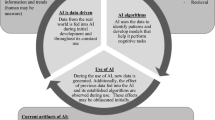Abstract
After the corporate scandals at the beginning of the new millennium, corporate governance codes were drafted and implemented in national laws and regulations. Unfortunately, due to an ongoing supply of new financial scandals and societal deceptions, our society increasingly distrusts executive directors, non-executive directors and supervisory board members, as they often appeared to play a significant role in these scandals. Non-executive directors (NEDs) and supervisory directors (SDs) are often accused of having overlooked the important issues in their supervising role or having failed to intervene in company decision making. Previous research has shown that many NEDs and SDs operate on the basis of their own unwritten rules, which may very well be different from those of their colleagues. In this article we examine whether and how a code of conduct or code of ethics might help to further clarify how NEDs/SDs should act. We also investigated the views of NEDs/SDs themselves. It appears that current corporate governance codes are not sufficient to guide directors on behavioral aspects of their supervisory role. This article shows that a code of conduct could provide this guidance to NEDs/SDs on several issues. First, a code of conduct would compel the Supervisory Board to reflect on its own values. Second, it would compel NEDs/SDs to verbalize their unwritten rules. The results may be applied internationally and could have relevance to the experience of executive directors in addition. This article may serve as a discussion document for other jurisdictions in addition.
Similar content being viewed by others
References
Beumer, M. and D. Swagerman: 2007, ‘Bezoldiging van de Raad van Commissarissen’, Maandblad voor Accoun-tancy en Bedrijfseconomie (4), 158–169.
CEPLIS (ed.): 2007, ‘European Council of Liberal Professions; Common Values of the Liberal Professions in the European Union. Preamble’, http://www.ceplis.org/en/values.php.
Corporate Governance Code Monitoring Committee: ‘Report on the Evaluation and Updating of the Dutch Corporate Governance Code’, June 2008, www.commissiecorporategovernance.nl/page/downloads/MC_report_june_2008.pdf.
Dawson, I. and A. Dunn: 2006, ‘Governance Codes of Practice in the Not-For-Profit Sector’, Corporate Governance 14(1): 33-42.
De Bos, A. & Lückerath-Rovers, M. 2009, Nationaal Commissarissen Onderzoek 2008, Erasmus Universiteit Rotterdam, Rotterdam.
Donaldson, L. and J.H. Davis. 1991, ‘Stewardship Theory or Agency Theory: CEO Governance and Shareholder Returns’, Australian Journal of Management 16(1): 49-64.
Glasz, J.R. 1986, De commissaris: aanbevolen gedragsregels, Kluwer, Deventer.
Glasz, J.R. 1995, Enige beschouwingen over zinvol commissariaat, Kluwer.
Hillman, A.J., C. Shropshire & A.A. Cannella. 2007, ‘Organizational predictors of women on corporate boards’, Academy of Management Journal 50(4): 941-952.
Huse, M. 2005, ‘Accountability and Creating Accountability: a Framework for Exploring Behavioural Perspectives of Corporate Governance’, British Journal of Management 16: 65-79.
Huse, M. 2007, Boards, Governance and Value Creation, Cambridge University Press, Cambridge.
Janis, I.: 1972, Victims of Groupthink; a Psychological Study of Foreign-Policy Decisions and Fiascoes (Houghton, Mifflin, Boston).
Jensen, M.C. and W.H. Meckling. 1976, ‘Theory of the Firm: Managerial Behavior, Agency Costs and Ownership Structure’, Journal of Financial Economics 3(4): 305-360.
Kaptein, M. and M.S. Schwartz. 2007, ‘The Effectiveness of Business Codes: A Critical Examination of Existing Studies and the Development of an Integrated Research Model’, Journal of Business Ethics 77: 111-127.
Lückerath-Rovers, M., A. De Bos, and L. M. Quadackers: 2009, ‘Non-Executive Directors in the Profit and Non-Profit Sector: A Different Approach Towards Governance?’, Management Online Review 1–14.
Maassen, G.F. and F.A.J. Van den Bosch. 1999, ‘On the Supposed Independence of Two-tier Boards: formal structure and reality in the Netherlands’, Corporate Governance: An International Review 7(1): 31-37.
Mitchell, R.K., B.R. Agle & D.J. Wood. 1997, ‘Toward a Theory of Stakeholder Identification and Salience: Defining the Principle of Who and What Really Counts’, The Academy of Management Review 22(4): 853-886.
Pfeffer, J. & Salancik, G.R. 1978, The external control of organizations: A resource dependence perspective, Harper & Row, New York, New York.
Postma, T. J. B. M. and H. Van Ees. 2004, ‘De illusie van onafhankelijkheid: Over het effectief functioneren van de Raad van Commissarissen en de relevantie van de code Tabaksblat’, Maandblad voor Accountancy en Bedrijfseconomie 76(9): 404-411.
Schwartz, M.S.. 2002, ‘A Code of Ethics for Corporate Code of Ethics’, Journal of Business Ethics 41(1/2): 27-43.
Schwartz, M.S., T.W. Dunfee & M.J. Kline. 2005, ‘Tone at the Top: An ethics code for directors?’, Journal of Business Ethics 58: 79-100.
Stohl, C., M. Stohl & L. Popova. 2009, ‘A new generation of Corporate Codes of Ethics’, Journal of Business Ethics 90: 607-622.
Van der Grinten, W. C. L.: 1987, ‘Gedragsregels Voor Commissarissen’, De Naamloze Vennootschap 65(2), 62–63.
Wilensky, H.L. 1964, ‘The Professionalization of Everyone?’, The American Journal of Sociology 70(2): 137-158.
Author information
Authors and Affiliations
Corresponding author
Rights and permissions
About this article
Cite this article
Lückerath-Rovers, M., De Bos, A. Code of Conduct for Non-Executive and Supervisory Directors. J Bus Ethics 100, 465–481 (2011). https://doi.org/10.1007/s10551-010-0691-y
Published:
Issue Date:
DOI: https://doi.org/10.1007/s10551-010-0691-y




